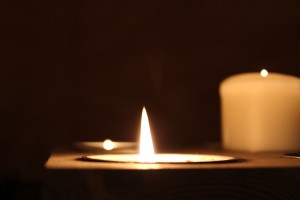“Love of beauty is taste. The creation of beauty is art.” —Emerson
“One thing I have asked from the LORD, that I shall seek: That I may dwell in the house of the LORD all the days of my life, To behold the beauty of the LORD And to meditate in His temple.” —Psalm 27:4
My oldest daughter lives in the Shire. Kandern, in the Germany Black Forest, and the surrounding villages, are populated by people tending small farms, artists, and retirees. Today we hiked up to a small castle ruins, and last night took a walking tour through the village. The combination of being away from my day to day leadership responsibilities coupled with my newness to this part of the world combine to heighten my senses. The landscape and the architecture captivate me. Throw in a symphony of birds as music score, and we’re walking through a sensual feast.
“Sensuality” is a word that’s looked at with suspicion among Christians because it’s used negatively each of the four times it appears in the Bible. We’re afraid of being seduced by our feelings, and as a result we become afraid of our actual feelings. Our fear of “the abuse of the thing” leads to a “fear of the thing,” which can, I’m afraid, lead to a “loss of the thing.” It would be like being afraid of becoming an alcoholic, and responding to that fear by burning vineyards to the ground. This way of thinking, this suspicion towards things that bring joy to our senses, becomes a sort of functional gnosticism, where we relegate pleasure of any kind (other than that derived from praying and reading the Bible) to a bin entitled “of this earth.” This division occurs in different ways with different people, and to varying degrees. Wherever it appears though, the affect is the same: our capacity to both enjoy and create beauty is muted. Food becomes fuel. Sex becomes procreation, or worse, obligation. Architecture becomes shelter. Art becomes propaganda. The world becomes gray.
“Sensual,” though, actually means “to be pleased by one’s senses,” which reminds me that Jesus sad indictment of so many wasn’t that they engaged their senses too much, but they didn’t engage them enough. They “have eyes, but don’t see, and heave ears, but don’t hear.” All of life is intended to be this rhythm of response to revelation, this taking in of what God is showing us, and this response, which will often be a response of reflecting back God’s love of beauty by creating beauty ourselves.
Whether it’s food artfully prepared, window shutters tastefully ornamented, the wooden interior of a village church, or gardens lovingly tended, the beauty of this little part of the world captures my eyes, and then my heart. Do I pay attention because it’s beautiful? Or is it beautiful because I pay attention? Yes. Either way, the engagement with what’s there is what matters.
What matters next, with any sensual pleasure, is what I do with it. Romans 1 tells us to give thanks to the Source, God, Creator. Fail here, and sensuality becomes a drug. Succeed here and we’re empowered and energized to take up the calling ourselves. We’ve seen beauty and given thanks, so not only is there joy in our hearts, but when we get home, we clean the bathroom, or take a bit more care with the food we cook, or choose our words when writing. Yes—we’re made for beauty; to both receive it with eyes wide open and hearts filled with gratitude, and to give it.
There are countless barriers to living this way. Busyness numbs our senses. Fear that causes us to shut our hearts off from pain leads us to shut our hearts off from pleasure too. Dualism runs deep in our Christian veins, all the way back to the earliest days of the church. We’ve idolized productivity, choosing quantity over quality countless times. These are realities. But they’re realities that we must—must—fight, so that we can restore small patches of beauty to our world. Each creation might well become a tiny little doxology: praising God by creating.
And it’s not just meals, gardens, sewing, and window shutters we’re talking about. Acts of justice, mercy, and love are also splashes of beauty—but I could write a book on that 🙂 I’ll add pictures to my flickr account day by day, if you’re interested.
What are your barriers to seeing and enjoying beauty? What can we do to encourage creativity and beauty among Christ followers?















